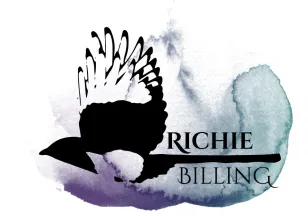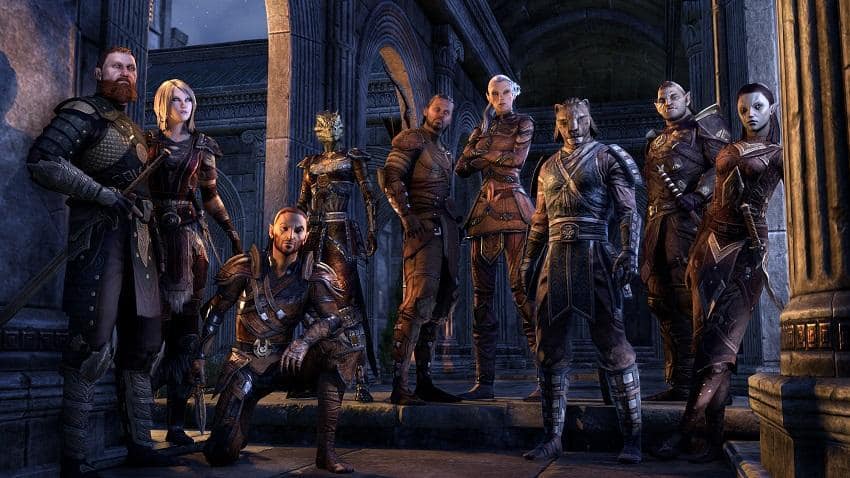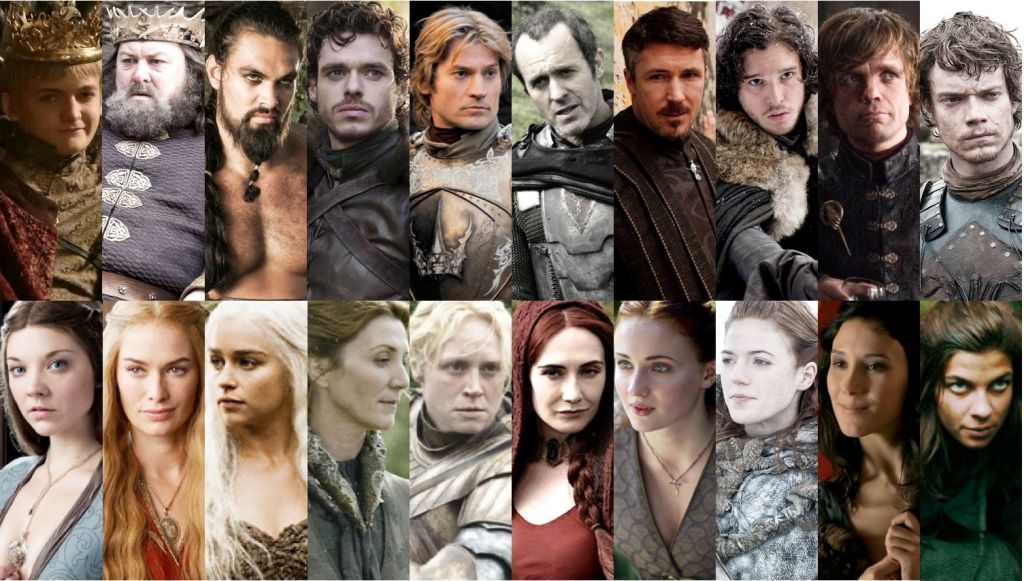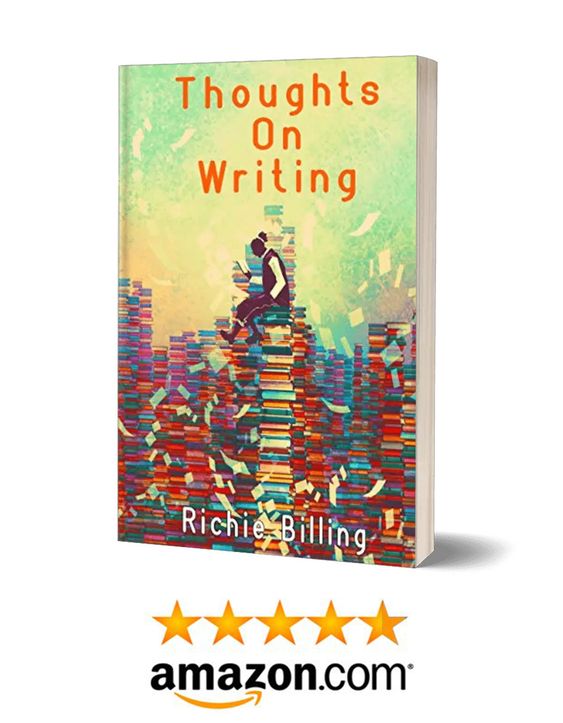Coming up with fantasy character names can feel like one of the biggest decisions you will ever make as an author when writing your story or novel.
‘Is this fantasy enough?’
‘Do I need to give them a fantasy last name or a title or nickname?’
Or a favourite of many…
‘Should I add an apostrophe to make it more fantasyish? Heck, why not two?’
Creating names for fantasy characters isn’t as straightforward as you think. Many a time I’ve been stopped dead in my tracks by questions like these above. The process of creating fantasy names is important, and below we’ll discuss why.
We’ll go over some points to bear in mind when thinking of names for fantasy characters, as well as a few methods to help you come up with your own, like using a fantasy name generator, such as the one I’ve created myself using all of the tips and advice we’ll go through below.
We’ll also look at naming a fantasy world, fantasy names for cities, fantasy names for places, villain names, fantasy names for boys and girls, fantasy last names, and even names for a dragon!
We’ll also answer the following points:
- What are good fantasy names?
- How to generate fantasy names
- How to make fantasy names
Let’s dive in.
Select A Section
- Guiding Principles When Creating Names For Fantasy Characters
- Coming Up With Names For Fantasy Characters
- Check Out My Fantasy Name Generator
- Villain Name Generator
- Characterising Through Names
- Fantasy Last Names
- Fantasy Names For Cities and Naming A Fantasy World
- Fantasy Names List
- Join An Online Writing Group For More Help With Fantasy Names
- More Resources On Names For Fantasy Characters
- Names For Fantasy Characters FAQ
Guiding Principles When Creating Names For Fantasy Characters
A name that’s too hard to read is going to annoy your readers. That’s the crux of it. So with that in mind, let’s look at perhaps the most important consideration…
Clarity reigns supreme
Names can be a touch on the wild side when it comes to fantasy. I often wonder where the love for the random apostrophe come from.
“Calt’huun looked at Lym’r, then at Ecka’rd, before spinning around and facing Pn’agy’my.”
That’s a fictitious example, but you see what I’m getting at. A difficult name can attract negative attention, jar the flow and cause immense frustration for readers.
What I always do is look at the greats. How have they named their fantasy characters? Raymond E. Feist named his protagonist in The Riftwar Saga Pug. Only 3 letters. Very easy to understand
Likewise, Brandon Sanderson in the Mistborn series called his lead character Vin. George R.R. Martin did similar with names like Jon and Bran.
Going for simple names like this leaves no room for doubt. They’re straightforward and you don’t waste time stewing over pronunciations.
I followed this principle for my own novel, Pariah’s Lament My two protagonists are called Edvar and Isyara, or Isy for short.
It’s also in your interest to come up with easy-to-understand names. After all, you’re the one who has to type it out a bunch of times throughout the story, and if there’s one or more apostrophes in there somewhere, you may forget where they go! The same applies to all types of names, I think, from fantasy creatures to the grand lords and ladies.
The danger of similar names
A similar point to clarity above, having two or more characters with similar names runs the risk of causing reader frustration and fatigue. They may find themselves flicking back through pages to see if they haven’t gotten things mixed up. This may lead to confusion, and let’s be honest, who wants to feel confused? Nobody.
Let’s look at an example. In the Game of Thrones books (A Song of Ice and Fire for all you aficionados), Theon Greyjoy has a sister named Asha. This, however, is remarkably similar to another character, and one who features quite a bit called Osha, who’s the wildling woman charged with looking after Rickon and Bran Stark.
HBO decided that this was too much of a clash, so in the series, Asha was changed to Yara to rule out the risk of confusion. This is a great example of how similar names can cause disruption.
Creating Names For Fantasy Characters
“Names are hard,” George R. R. Martin
Perhaps the hardest part of creating a fantasy character is thinking of a suitable name.
I’m a big fan of George R.R. Martin’s approach. He likes to look at our real-world names and twists them to give them more of a unique edge. For instance, we have Edward which becomes Eddard, and John which is changed to Jon.
George R.R. Martin also suggests turning to baby books. No doubt he undertakes a similar sort of process, picking names both common and unusual and changing them about if he feels the need.
This approach of taking a common name and playing about with it I’ve found particularly helpful—it strikes a balance between clarity and originality. Playing around with vowels is a good process to go through. For instance, take the name Hal and swap the vowel around—A, E, I, O, U—you can make a different name out of everyone.
Fantasy Name Generator
Select Race
- angel
- cavePerson
- darkelf
- demon
- dragon
- drow
- dwarf
- elf
- fairy
- gnome
- goblin
- halfdemon
- halfling
- highelf
- highfairy
- human
- ogre
- orc
I decided to create my own fantasy name generator, one that takes into consideration all of the guiding principles we’ve covered above. I was fortunate enough to find some very talented people to help me build this. And it’s been designed and rigorously tested with the user in mind.
I wanted to create something fresh and fun to use, but crucially a generator that gives you great results. You can find names for male and female characters, elves, orcs and much more.
Head over to my fantasy name generator page by clicking here or the button below.
Simply use the drop-down menu to select the race of your choice, select male or female, and hit the generate button. You may need to press it a couple of times to get a result.
Another method you can adopt is trying a fantasy name generator—you’ll be surprised at how many of them there are. GRRM doesn’t like them, but they can sometimes throw up a decent result.
They’ll give you names of female fantasy characters, male fantasy characters, elves, orcs, dragons… literally anything.
I had a go of the top site and this is what I got for fantasy elf names:
- Heledithas
- Alok Pafina
- Glynralei
- Zylbanise
- Morthil
- Lhoris Caina
- Perran
- Jhaan
- Alosrin Yinwarin
- Theodjin
Some are good fantasy names, maybe not the best, but decent all the same. The one’s I like here are Alok, Jhaan, Lhoris. A lot of them, however, illustrates perfectly what to avoid. They’re difficult to pronounce. They have too many words, syllables and letters, and can be seen as trying too hard.
When you spot a name you like the look of, be sure to say it aloud. Can it be said in different ways? It’s incredible the number of variations my readers come up with for my fantasy characters and fantasy places.
Villain Name Generator
As well as fantasy name generators for coming up with fantasy names for girls and fantasy names for boys, there also exists a villain name generator.
The tool that you can see above can be used to create the names of antagonists too. This can be especially useful if you’re struggling to come up with ideas. Trust me, it happens, and it can feel harder than actually writing a story or novel.
But there are some tips you can follow when it comes to selecting a name.
- Think about names that characterise. We’ll go into more detail on this below, but in short, it involves giving a character a name that relates to who they are. So a thief may have the surname “Quickhand” or “Lightfoot”.
- Think about their background. Sometimes a villain may come from a simila rbackground as everyone else. That may mean they have a pretty normal name. You could even twist this to disarm the reader. “How could someone called Sandy be so evil?”
- You could introduce a title or accolade to signify their status. Lord Voldemort, Darth Vader and so on.
Further reading: The Bad Guys – How To Create Antagonists
Characterising Through Names
A bland character blends in with the greyness, living briefly in the minds of readers. On the other hand, a name with more eccentricity has the ability to set a character apart and inflame imaginations.
One way to characterise with a name is to introduce a title or last name. In David Gemmel’s Legend, one of the main heroes is called Druss the Legend, and that makes him a bit unforgettable. Another example can be seen in Star Wars. Luke, let’s be honest, is a bit of a boring name, but when we add Skywalker that changes things. We immediately think of things like space and adventure—it invokes an image in our minds.
I love the use of a nickname too. In just a few words you can tell the reader a lot about a character without saying much at all. Again, titles can provoke images in our minds. The Mountain in Game of Thrones is a great example.
Characters’ age and background
One important consideration is to think of a character’s age and background. With regards to age, for example, names can go out of fashion. If you search for popular names from 100 years ago and combine them with the modern-day, you’ll notice a massive difference. Does a similar thing happen in your own fantasy world? This may be more applicable to your story if it involves a significant passage of time.
Character background is also important. Do the people of different regions, countries, continents and cultures follow different naming conventions? Does religion influence it in any way? In our world they do, and the same could be said for your fantasy world too.
Fantasy Last Names
Fantasy last names are underused in the genre. I keep going back to Game of Thrones, but given the sheer number of characters and the manner in which they’re named, it’s a constant source of tremendous examples for fantasy names, particularly fantasy last names.
For example, in Game of Thrones, we have the bastardy names – Snow, Sand, Flowers, Rivers, Stone, to name a few. This all helps to build the fantasy world by suggesting the history and wider issues at play in the world. These names then influence how those characters are treated by others.
Consider adding meanings
By adding meanings to your fantasy last names you can add a whole new layer to your story as well as developing your fantasy worldbuilding.
If you think about our own world, there are many cultures that adopt meanings to names. Some I find most beautiful and intriguing can be found in Norse, Arabic, African and Celtic cultures.
Fantasy Names For Cities and Naming A Fantasy World
When it comes to creating fantasy names for cities and names for a fantasy world, the guiding principles we covered at the beginning very much apply again.
The last thing you want is for your reader to stumble over the pronunciation of the name of your fantasy city, place or fantasy world. Clarity always reigns supreme.
You could always try a fantasy name generator to give you some inspiration. And I’ve also included a fantasy names list below too.
How to make up a name for a fantasy world
There are no hard and fast rules for making up a name for a fantasy world. Just take a look at some examples:
- Middle Earth
- Midkemia
- Tervia
- Avalon
- Skyrim
- Discworld
- Earthsea
- Malazan
- Neverland
We could go on, and if you head over to Wikipedia you can find a serious compendium of them all.
What do you notice about these names? They all seem quite random, don’t they? But some of them tie into key features of the world. Earthsea and Discworld, for instance, both relate to the nature of the world.
So if you’re struggling for a name, why not first build your world, take a look at some unique features and see if you can work that into a name.
You could also take a look at some names we’ve given to places in different languages. Latin is a great one and is where I got Tervia from. You can also look to other languages like Gaelic and Nordic. You may find that taking parts of names and combining them with others is a great way to make up a name for a fantasy world.
Fantasy Names List
If you don’t want to use a fantasy name generator—which to be honest can be tough to use—here’s a set of short fantasy names lists that will give you a good start and hopefully some inspiration for your own characters. I’ve also added a short list of medieval names given the popularity of the Middle Ages in fantasy!
Fantasy Names – Female
- Anida
- Ikana
- Kila
- Zefera
- Sanya
Fantasy Names – Male
- Cespar
- Daska
- Ospai
- Jabarid
- Serin
Medieval Names
- Anselm
- Udo
- Thomasia
- Joyse
- Frideric
- Rolandus
- Ysolt
- Iseult
- Ayfara
- Armine
Join An Online Writing Group For More Help With Fantasy Names
If you’d like more help with coming up with names for your characters, or if you’d like to connect with fantasy readers and writers to test your names out, why not join my online writing group?
Created as a place to share, discuss and forge friendships, my writing group could be the writing home for you. It’s full of friendly writers from all over the world who are only too eager to help each other out.
If you have any questions at all, this is the place to ask them. To join the group, just click the button below.
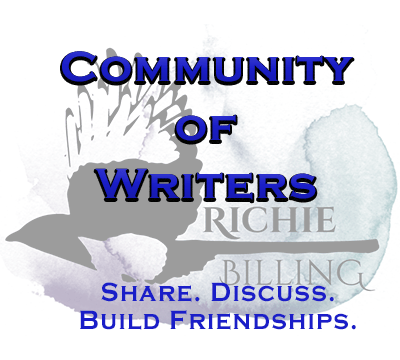
Join A Writing Group Full Of Passionate Writers
More Resources On Names For Fantasy Characters
Thank you so much for checking out this guide on coming up with names for fantasy characters. I hope you found it useful! I’ll leave you with some further reading.
- Here’s a good article on fantasy names from The Guardian.
- Here’s an insightful post on the topic by Brandon Sanderson.
Here are some of my other guides you may find of use:
- Fantasy writing
- How to write a fantasy novel
- How to write battles and fight scenes
- Elven names generator and guide
- The knight of chivalry – medieval knights
- Demon name generator
- Human name generator and guide
- The best communities for fantasy writers
- Fantasy archery – a complete guide
- Orc names generator and guide
- Worldbuilding in fantasy
- Fantasy name generator
- Worldbuilding template and guide
- Making Maps Part 1
- A Guide to Castles and Keeps
- Archery and Fantasy: A Guide
- A Guide to Medieval Weaponry
- Family Names of the UK
- A Guide to English Place Names
- Head here to learn more about fantasy horse names
For more writing tips, head here. Or for more content specific to fantasy writing, here’s the place to go. I also have a podcast on writing which you can listen to here.
Names For Fantasy Characters FAQ
How do I pick a fantasy name?
The best thing to do when it comes to picking a fantasy name is to go for the one that your readers will find the easiest to read and understand—the clearest name possible. This can be especially important if it’s the name of one of your main characters.
How do you name a character?
Naming a character is an important step. Some key considerations include
1.. Clarity – is the name easy to read and understand
2. Uniqueness – calling a character a common, dull name won’t help them stand out from the crowd.
3. Last names – often underused, last names can add more to a character, such as grand names of houses, like Stark or Lannister.
4. Nicknames and Titles – both nicknames and titles are a great way to reveal a little bit extra about your character. For example, The Hound or The Mountain in Game of Thrones.
How do you create a unique name?
A unique name is one that we don’t often see. One that makes us stop and think about how unusual it is. One that may sound intriguing and provokes a sense of curiosity in us to discover more. To create a unique name, a good method is to take a common name and play around with the vowels – A, E, I, O, U – or combine two names together.
How do you make up a character name?
If you decide not to use a tool like a fantasy name generator, one of the most effective ways of making up a character name is to play around with the vowels in a name – A, E, I, O, U – as well as combining parts of different names. That way, you’re more likely to come up with something original and unique—the perfect fantasy name.
Thank you for reading this guide on creating names for fantasy characters.
- 5 Tips to Help Your Child Learn and Succeed at Primary School - February 26, 2024
- The Advantages Of Using An AI Essay Typer Alternative - February 14, 2024
- Advice On Getting Help With Your Homework - January 26, 2024
